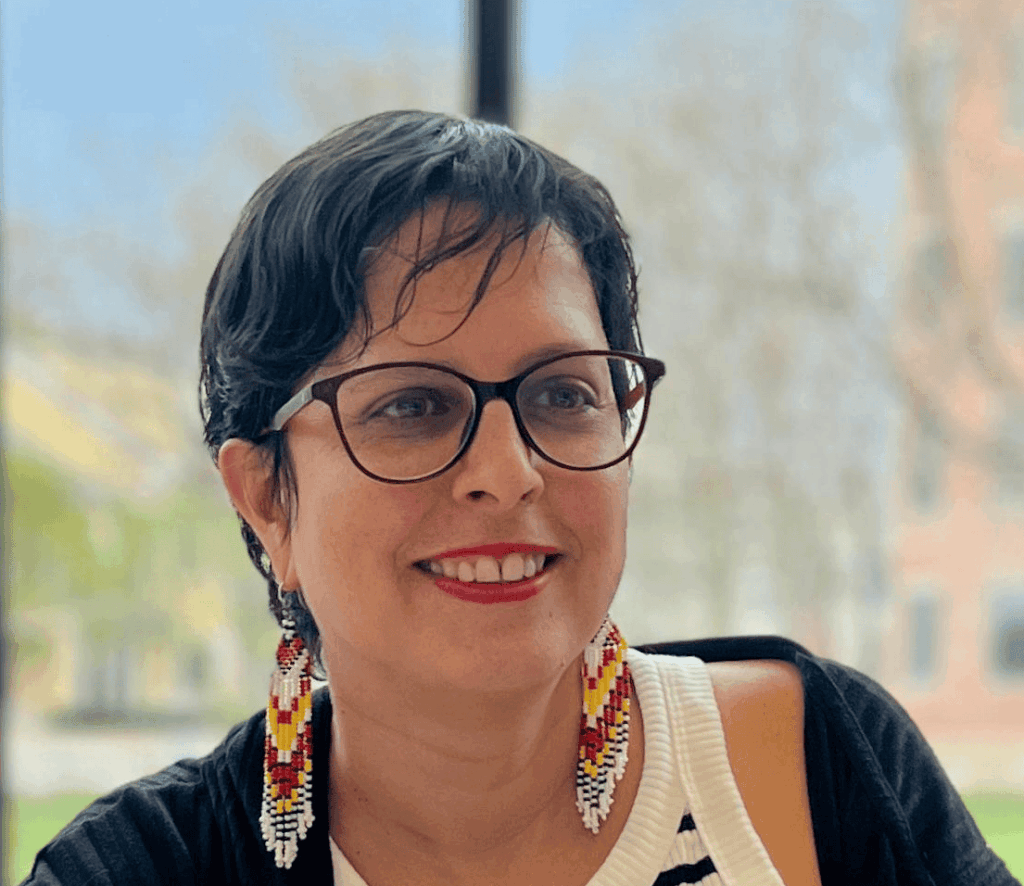
Mariana Alegre Escorza
Lecturer in Urban Planning and Design
Visiting Faculty
- Design & Social Equity
- Health
- Land Use Law
- Public Space
- Risk & Resilience
- Strategy & Management
- Sustainability
- Transportation
- Urbanism
Mariana Alegre Escorza is Lecturer in Urban Planning and Design at the Harvard Graduate School of Design and the founder and executive director of Sistema Urbano , a Latin American urban innovation ecosystem that integrates data, participation, and collaborative action to transform cities and territories. Her work seeks to improve quality of life by advancing citizen-led urbanism to address urban inequity, spatial injustice, and climate challenges. She bridges research, policy, and practice through participatory processes, civic engagement, and cross-sector collaboration, with a focus on urban mobility, public transit and active modes, climate resilience, land use, and the co-creation of public space. Alegre believes in community care and community power as essential drivers for advancing public goods.
Alegre has founded and led multiple award-winning platforms. Lima Cómo Vamos , an independent urban observatory, has produced more than 30 surveys and reports influencing public policy and community action. Ocupa Tu Calle has transformed over 50 public spaces, shaped national and local policy, trained mayors and public officials, and partnered with multilateral organizations to scale participatory approaches across Latin America. She also established Ciudades Cómo Vamos – Perú, a national civic observatory network; Nodal, a regional platform connecting urban changemakers across Latin America; and Clima Urbano, an initiative advancing socio-ecological responses to environmental and health crises. She has served on national and municipal advisory committees, including Peru’s Bicentenary Special Project; designed participatory frameworks for local governments; and worked with communities throughout Peru and Latin America to co-produce public goods and strengthen resilience.
Her academic work includes teaching at the Pontificia Universidad Católica del Perú in the Master’s program in Architecture, Sustainable Urbanism, and Territorial Development, as well as in the Law School and the School of Management. She is a tenured professor at the Faculty of Management Sciences. Alegre has designed and delivered courses on urbanism, citizenship, the right to the city, urban and social management, and environmental and social innovation, in addition to directing the Law Clinic on Sustainable Cities. She has advised graduate theses and authored publications on public space, citizen-led urbanism, mobility justice, inequality, and risk management. In addition to her academic and civic leadership, Alegre is a skilled communicator and public voice, with experience as a columnist and radio presenter on urban issues.
Alegre’s leadership has been recognized with the Loeb Fellowship at Harvard GSD (2024–25), inclusion in Forbes Peru’s “Most Powerful Women” list (2022), and designation as a Remarkable Woman in Transport by Women Mobilize Women & TUMI (2019). She has participated in global exchange and leadership programs with the U.S. Department of State, the French Ministry of Foreign Affairs, the International Affairs Office of Bordeaux Métropole and international universities such as MIT (MetroLab IAP), Aalto University and the Technical University of Dresden (CIPSEM).
She holds a MSc in City Design and Social Science from the London School of Economics as a Chevening Scholar, a Master’s in Human Rights, and a Law degree from the Pontificia Universidad Católica del Perú.